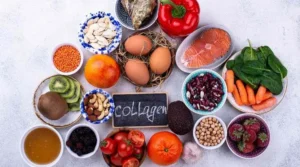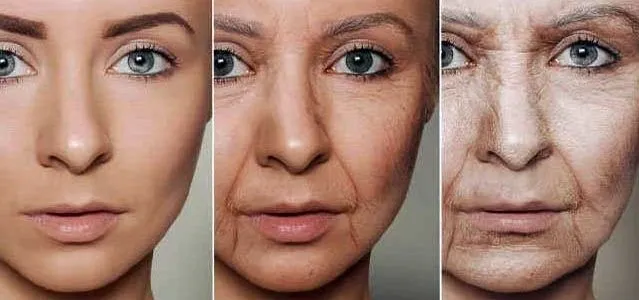
As we age, our skin’s elasticity and radiance often diminish. However, the food choices we make can significantly influence our overall health and the vitality of our skin. A balanced diet rich in vitamins, minerals, and antioxidants can contribute to maintaining a youthful glow and a robust body, promoting longevity and enhancing our quality of life. Nutrition plays an indispensable role in skin health. The right nutrients can help the skin to regenerate, reduce inflammation, and protect against the sun’s damaging effects.
Take a moment to consider how your current diet affects your overall health and appearance. Are you fueling your body with the right kind of nourishment it needs? If not, it’s never too late to start.
Creating a healthy diet doesn’t have to be complicated or restrictive. It’s about making mindful choices, understanding what your body needs, and providing it accordingly. Start with small, manageable changes like the honey-sugar swap, and gradually incorporate more fruits, vegetables, lean proteins, and healthy fats into your meals.
Sugar, especially that found in sodas and energy drinks, can be one of the most harmful elements for your skin. It’s not just about the calories or the risk of weight gain. The real issue lies in the detrimental effects sugar has on our skin’s health and vitality. Simple changes like replacing sugar with honey are excellent ways to begin your journey towards healthier eating habits. Honey is a natural sweetener that not only satisfies your sweet tooth but also offers antioxidants and anti-inflammatory properties, which are beneficial for your skin health. Consuming high amounts of sugar, particularly fructose, can lead to various dermatological problems, including acne, and can significantly speed up the aging process.
In the busy hustle and bustle of today’s world, frozen dinners often seem like a convenient food option. However, it’s crucial to be aware of their nutritional content and the effects they can have on our health. A single frozen dinner could contain up to half the sodium that is recommended for a healthy daily diet. Consuming too much salt can lead to excessive thirst and overburden our kidneys, which are responsible for filtering out waste and excess fluids from our bodies. The extra water then moves to areas of the body with less salt concentration, such as the face and hands, causing a puffy appearance.
Adding to this, another element to consider in our diets is the consumption of processed meats. While meat is an excellent source of protein that helps keep us healthy and assists in muscle strength recovery, processed varieties like sausages, bacon, and deli meats can have a different impact. These foods can lead to dehydration and decrease the production of Vitamin C in our bodies. Vitamin C plays a vital role in our health, particularly by promoting collagen formation, which is key for skin health and wound healing.
As much as you may enjoy that chilled margarita on a warm evening, the harsh reality is that it’s not doing your skin any favours. Alcohol has a dehydrating effect on our bodies, and while you may not feel it immediately, over time, the effects start to show on your skin. Remember that our skin is 63% water, and when we consume alcohol, it strips away this essential component, leaving our skin dry and lackluster.
Remember, a radiant and youthful complexion isn’t achieved overnight. It’s a reflection of consistent healthy eating habits over time. As you age beautifully, let your skin tell a tale of healthy dietary choices, balanced lifestyle habits, and self-care. Embrace the journey of aging with grace and vitality, knowing that each food choice you make is a step towards a healthier, more vibrant you.
Can Eating Right Build Back Collagen On My Face?

Yes. Collagen is the protein present in your skin that lends the skin its suppleness and buoyancy. As we age, our body produces less collagen, leading to signs of aging such as wrinkles and sagging skin. While some supplements may be helpful, we suggest focusing on your diet first. Nourishing your body with the right foods can make a significant difference. Eating right after years of choosing the wrong foods will not reverse signs of aging on the skin, but including collagen-rich foods in your diet can show visible results over time. Egg Whites, for instance, are not only a great source of protein but also contain proline, an amino acid necessary for collagen production. Bone Broth is another excellent option; it is packed with collagen and other nutrients that support skin health.
Incorporating Fish into your meals can provide essential omega-3 fatty acids, which help maintain skin elasticity and hydration. Citrus Foods like oranges, lemons, and grapefruits are high in vitamin C, which plays a crucial role in collagen synthesis. Lastly, don’t underestimate the power of Berries. These small fruits are rich in antioxidants that protect the skin from damage and support overall skin health. By making these dietary changes and incorporating these collagen-boosting foods, you may notice your skin becoming more resilient, hydrated, and youthful-looking. Remember, it’s never too late to start caring for your skin from the inside out. A balanced diet rich in collagen-promoting foods can offer a natural and effective way to enhance your skin’s health and appearance.







